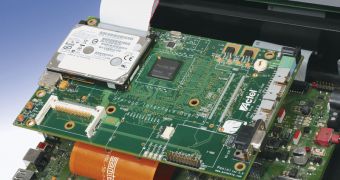At the end of May we reported that researchers from Cambridge University claimed to have found a backdoor in Microsemi chips. As expected, the Chinese manufacturer has come forward with a statement denying the accusations.
“Microsemi has not been able to confirm or deny the researchers’ claims since they have not contacted Microsemi with the necessary technical details of the set-up nor given Microsemi access to their custom-designed equipment for independent verification,” reads the company’s statement.
“Microsemi can confirm that there is no designed feature that would enable the circumvention of the user security.”
The researchers’ experiments have allegedly shown that by obtaining a security hey, hackers can access the internal testing features, but according to the Chinese firm, all their chips are shipped with the test facility disabled by default.
They also reveal that this prevents Microsemi or anyone else from accessing the internal test mode. Furthermore, customers can also program their FPGA to the highest security settings to prevent unauthorized access.
The FPGA’s in question were designed back in 2002 and released in 2005, but the company expected attack technologies to advance and as a result they licensed the DPA patent portfolio of Cryptography Research.
These measures will be implemented in the upcoming generation of products to mitigate DPA-type attacks.
The Register makes an interesting point regarding the Cambridge researchers’ findings. They highlight the fact that there may be a possibility that “spies” learned of the experiments before they began and planted the key to make sure the experts would find it.
Such a discovery would, of course, make China look even more like a villain whose every action targets the United States. This theory would be highly plausible, especially since, when the news first broke out, many were saying that the chips were utilized by the US military.

 14 DAY TRIAL //
14 DAY TRIAL //